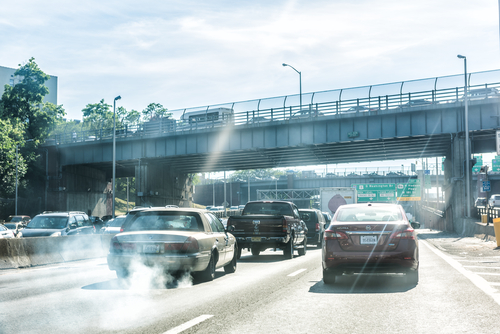
Nearly 60 member of the U.S. House of Representatives said they support moves in the Biden Administration to track and reduce greenhouse gas emissions Tuesday.
In a letter to U.S. Transportation Secretary Pete Buttigieg, U.S. Reps. Peter DeFazio (D-OR), chair of the House Committee on Transportation and Infrastructure, Eleanor Holmes Norton (D-DC), chair of the House Subcommittee on Highways and Transit, joined 56 other House members in support of the Federal Highway Administration’s (FHWA) proposed performance measure to track reductions in greenhouse gas emission on the National Highway System.
“After more than five years of delay, we applaud FHWA for taking this important step to implement a GHG performance measure,” the legislators wrote. “This proposed rule will provide…a key tool to consistently measure, report on, and reduce carbon pollution from the surface transportation system.”
Transportation accounts for over 34 percent of the nation’s carbon pollution, according to the Environmental Protection Agency, and is the economy’s highest-polluting sector. On-road sources account for 83 percent of the transportation emissions, the law makers wrote.
The proposed rule is consistent with goals set in the Infrastructure Investment and Jobs Act to increase resiliency and reduce carbon pollution, the letter said.
“Establishing a nationwide, uniform performance measure will ensure consistency in tracking progress and help state DOTs, MPOs, and FHWA to identify the most effective programs, strategies, and projects for carbon reduction,” lawmakers wrote. “The performance measure would also inform state DOT and MPO efforts to carry out performance-based planning and project selection, consistent with statutory requirements.”
Under the proposal, state DOTs and MPOs would be required to set declining emissions goals that are aligned with the administration’s goal to have a net zero carbon emissions economy-wide by 2050. While the state organizations would have the flexibility to set targets appropriate for their communities, but they would still be required to reduce emissions over time.